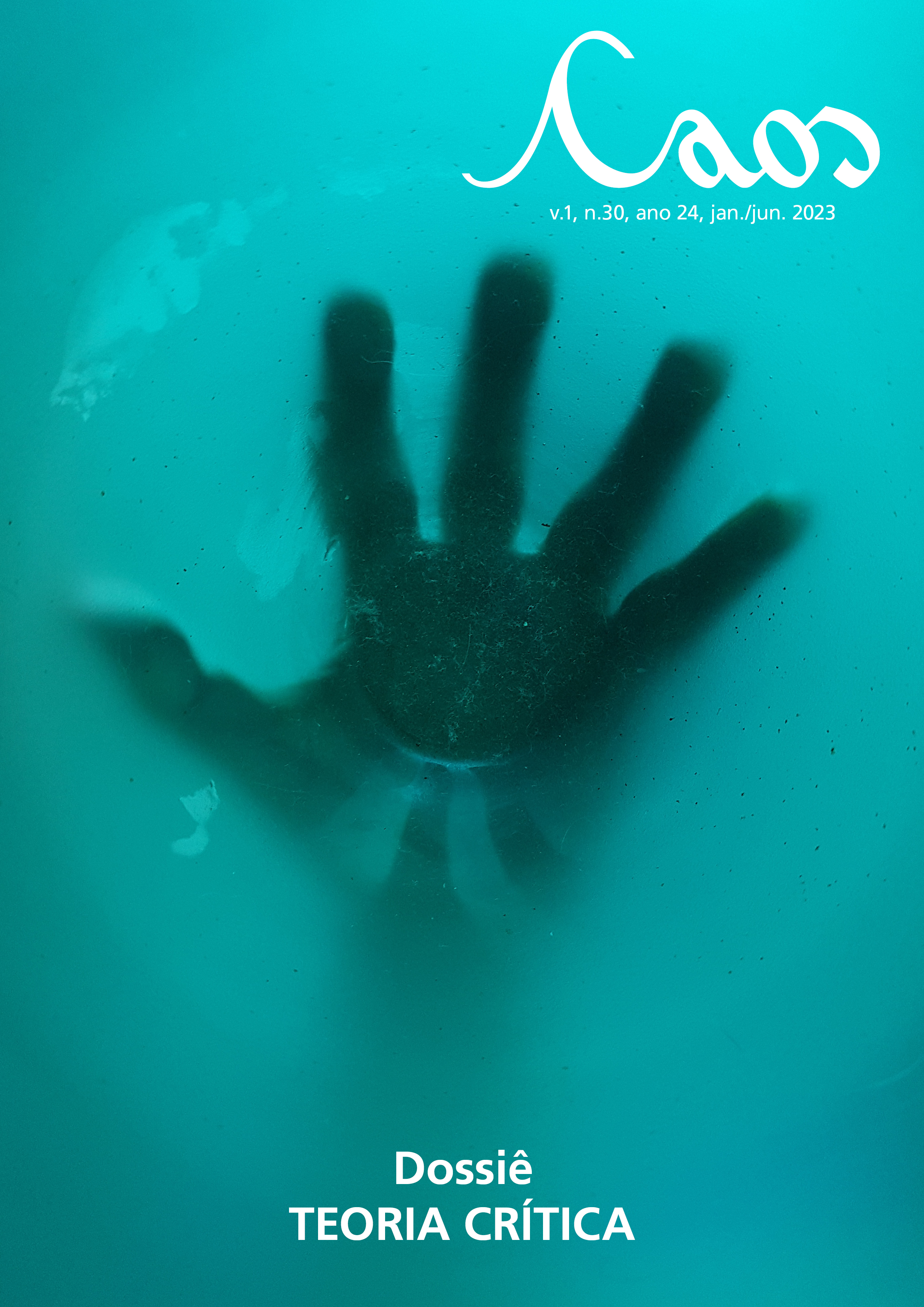THE RADICALISM OF CRITICAL THEORY, ITS REFLECTIONS ON THE KRISIS GROUP AND ON PAULO ARANTES' FORMULATIONS
DOI:
https://doi.org/10.46906/caos.n30.65853.p139-155Keywords:
critical theory, modernization and crisis, Frankfurt School, structural crisis.Abstract
This article discusses fundamental aspects of the radical criticism of the commodity production system made by the first generation of the Frankfurt school, notably by Adorno, Horkheimer and Benjamin. The purpose of the article is to investigate the relationship between the negative criticism proposed by the first generation, which did not aim at a partial change, through the State or another institutional agent, in the sense of reforming modern society. And its reflections in the theories of the Krisis group and in the formulations of Paulo Arantes. To this aim, we will analyze fundamental aspects of this criticism, comparing it with historical aspects that are decisive for its relative disappearance and resurgence. One of our conclusions is that the radical critique would make the first generation of Frankfurt the target of criticism and political isolation by the forces that tried both the path of social reforms and the attempts of State socialism throughout the 20th century. However, with the post-1970s crisis, the proposed critical theory increasingly returned to the center of analysis on the essentially destructive and totalizing character of the system, with repercussions on theoretical formulations in contemporary Brazil.
Downloads
Metrics
Published
Issue
Section
License
Copyright (c) 2023 Rodrigo Campos Vieira Lima

This work is licensed under a Creative Commons Attribution-NonCommercial 4.0 International License.
A Caos é regida por uma Licença da Creative Commons (CC): CC BY-NC 4.0, aplicada a revistas eletrônicas, com a qual os autores declaram concordar ao fazer a submissão. Os autores retêm os direitos autorais e os de publicação completos.
Segundo essa licença, os autores são os detentores dos direitos autorais (copyright) de seus textos, e concedem direitos de uso para outros, podendo qualquer usuário copiar e redistribuir o material em qualquer suporte ou formato, remixar, transformar e criar a partir do material, ou usá-lo de qualquer outro propósito lícito, observando os seguintes termos: (a) atribuição – o usuário deve atribuir o devido crédito, fornecer um link para a licença, e indicar se foram feitas alterações. Os usos podem ocorrer de qualquer forma razoável, mas não de uma forma que sugira haver o apoio ou aprovação do licenciante; (b) NãoComercial – o material não pode ser usado para fins comerciais; (c) sem restrições adicionais – os usuários não podem aplicar termos jurídicos ou medidas de caráter tecnológico que restrinjam legalmente outros de fazerem algo que a licença permita.
Recomendamos aos autores que, antes de submeterem os manuscritos, acessem os termos completos da licença (clique aqui).
















